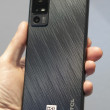Apple: A9-Driven Battery Variances Limited to 2-3%
Oct 9, 2015, 7:56 AM by Eric M. Zeman
Apple has responded to a series of claims that suggest there are palpable differences in battery life produced by the Samsung- and TSMC-sourced A9 processor in its new iPhones. Both Samsung and TSMC are making the A9 processor for the iPhone 6s and iPhone 6s Plus. Samsung's version uses a 14nm process and has a slightly smaller footprint than the TSMC 16nm chip. Several benchmark tests (AnTuTu, Geekbench, et al) imply that Samsung's A9 drains the battery up to two hours sooner than TSMC's A9. Apple says such tests aren't realistic and real-world variances are in the order of 2-3% — or about 12 to 15 minutes per day under normal usage. "Certain manufactured lab tests which run the processors with a continuous heavy workload until the battery depletes are not representative of real-world usage, since they spend an unrealistic amount of time at the highest CPU performance state," said Apple in a statement provided to Techcrunch. "It's a misleading way to measure real-world battery life. Our testing and customer data show the actual battery life of the iPhone 6s and iPhone 6s Plus, even taking into account variable component differences, vary within just 2-3% of each other." Such variances fall into acceptable norms for most consumer electronics.
Comments
No messages


 Review: Otterbox Universe and Olloclip 4-in-1
Review: Otterbox Universe and Olloclip 4-in-1
 Google Maps for iOS Gains Multiple-Stop Tool
Google Maps for iOS Gains Multiple-Stop Tool
 MetroPCS Opens Up iPhone Sales Nationwide
MetroPCS Opens Up iPhone Sales Nationwide
 AT&T Adds Touch ID Support to MyATT App
AT&T Adds Touch ID Support to MyATT App
 MetroPCS to Sell the iPhone
MetroPCS to Sell the iPhone
 Apple iPhone 6s
Apple iPhone 6s
 Apple iPhone 6s Plus
Apple iPhone 6s Plus



